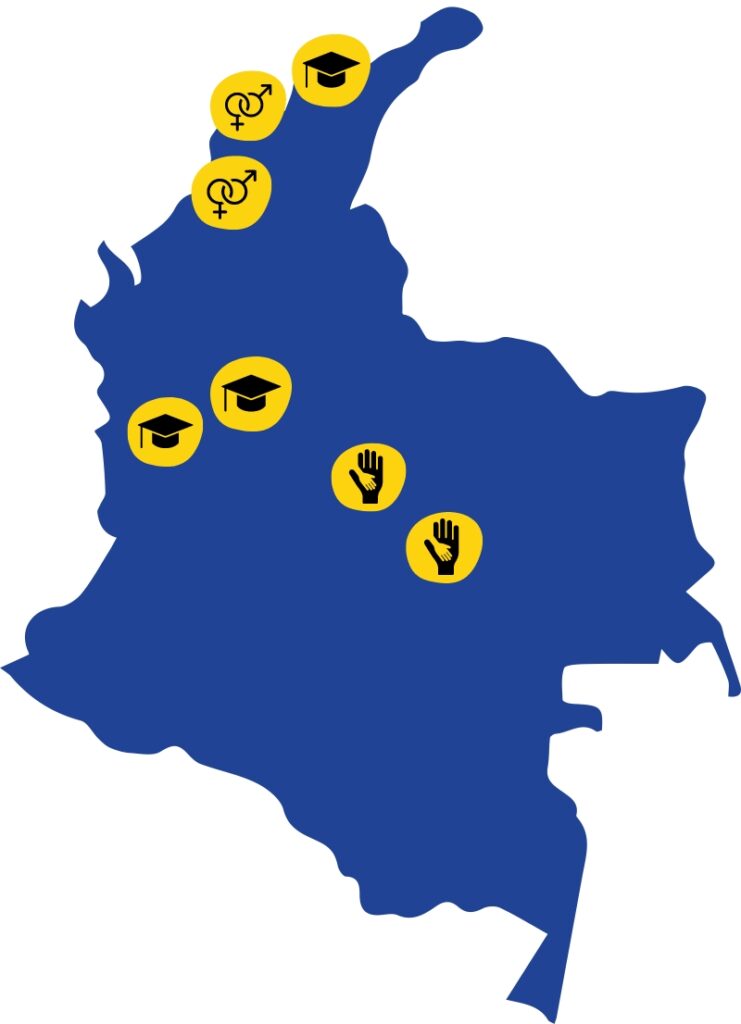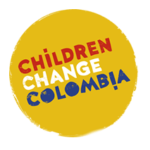Why Colombia?
Children in Colombia are facing poverty, violence and inequality caused by the world’s longest-standing civil war.
In 2021, Colombia was found to be one of the most unequal countries in Latin America. The conflict between the guerilla groups, paramilitary groups, and the Colombian government is the longest-standing active civil war, and has had a long-standing impact on Colombian society. The conflict has claimed the lives of over 200,000 people and, although estimates of disappearances are between 80,000-120,000 people, the reality of this figure is still unknown.
Consequently, Colombia’s poverty rate is troublingly high. According to a report by the Office of National Statistics, despite progress in recent years, over 36% of the population continue to live in poverty in Colombia. This figure increases to over 45% in rural areas.
In 2016, a peace deal was signed between the government and the country’s largest guerrilla group, the FARC. This presented great opportunities to construct a more peaceful society for all, and violence initially declined.
However, a ceasefire has still not been reached and various illegal armed groups continue to operate in Colombia. Murder, extortion, sexual violence and other human rights abuses by these groups continue to drive large numbers of people from their homes. In January 2024 alone, 12,600 Colombians were displaced due to internal conflict, with total figures reaching 6.9 million.
While these figures increase, Colombia also hosts the third largest population of refugees and other people in need of international protection worldwide, including 2.9 million Venezuelans. With an ever increasing number of people facing insecurity and in need of support, the complexity of the situation in Colombia has continued to grow.
Key neglected issues facing children in Colombia
The effects of the conflict on Colombian children are multiple and serious. The children that we work with live in sprawling urban slums or rural areas where violence and insecurity are abundant.
Witnessing and experiencing this kind of violence often causes trauma and makes it difficult for them to be able to enjoy a safe and happy childhood.
We have identified key neglected issues which pose a serious threat to Colombian children’s rights and wellbeing. Working in collaboration with our partners, we aim to tackle areas impacting the welfare of children and young people which currently do not receive sufficient attention.
Where we work
As the political and humanitarian situation in Colombia evolves, so do the threats facing children. We continuously carry out research to guide the direction of our work – the issues we work on, the regions we work in, and the partner organisations we work with.
We are currently running projects in:
- Bogotá, Cundinamarca
- Soacha, Cundinamarca
- Cartagena, Bolívar
- Quibdó, Chocó
- Istmina and San Juan river valley, Chocó
- Santa Marta, Magdalena
- Minca, Magdalena
- Villavicencio, Meta
- Restrepo, Meta
- Barranquilla, Atlántico
- Montebello, Antioquia
- Fredonia, Antioquia
- London, UK (project with the Colombian Diaspora)


